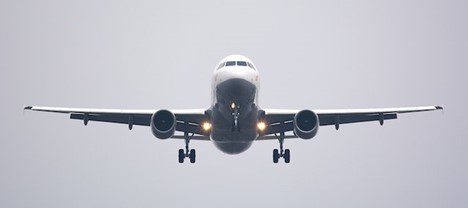The wave of electric transportation has been a breakthrough amid rapidly deteriorating environmental conditions. The global dependency on fossil fuels has reached an all-time high and has presented a dire need to shift towards a more ecological solution.

While electric cars have experienced a seamless integration into our present world, electric planes largely remain an uncharted area. However, many global organisations are looking at developing the appropriate technology to move towards electric air travel.
The transportation sector is one of the main areas where global carbon emission count can be reduced to a more sustainable level. Among the transportation sector, air travel services contribute significantly to the emission count. This is wildly inconsistent with the larger global decarbonisation target by the United Nations (UN).
INTERESTING READ: Thanksgiving might bring changes in holiday-travel habits
Here are some key points to note about electric air travel:
- Electric air crafts rely on power generated through batteries, unlike the traditional process of using standard jet fuel to power engines.
- Batteries are not as energy-dense as jet fuel, meaning that a bulk of batteries are required to power a massive engine such as an aeroplane.
- Due to the significant weight of batteries, this technology may not be easily adaptable to large aeroplanes. Instead, manufacturers would have to start with smaller planes.
- Institutions are now focusing on providing short-distance flights with electric planes, which would make for a large chunk of overall travel globally.
- Electric air travel would also help reduce costs incurred by airline companies and could make air travel cheaper for passengers.
- With diminished costs, airlines may also look at expanding air travel to some regions previously believed to be unprofitable.
- Around 200 companies are pursuing electric plane projects, with many already achieving successful test flights.
- Hydrogen-powered fuel cell aircraft is also an upcoming alternative to electric aeroplanes running on batteries.
- Most of the companies engaged in developing electric aeroplanes have the intention to enter into service by 2027.
Challenges in electric air travel:
Since electric air travel is essentially a developing field, challenges are bound to arise. The biggest challenge for any new technology is obtaining the appropriate licenses and regulatory checkmarks. These regulations are necessary for an idea to be turned into reality without leaving behind any loopholes or room for error.

The aviation industry has a tight and secure regulatory system, which would pose multiple hurdles for budding developers in this field. Thus, existing authorities would be hesitant to change these regulations, making it all the more difficult for new entrants to make a mark in this field.
A possible way to smoothly move towards more sustainable travel is to introduce a hybrid pattern, as seen in the case of the automobile industry. The electric component can be switched on only during a crucial part of the journey, such as take-off and landing.
While these solutions seem promising, the real implication of introducing such a technology would only be felt with the actual launch of these services. On a more realistic level, passengers can stay prepared for a hybrid flying technology first rather than the launch of a fully electric plane.
RELATED READ: Renewable energy: A promise for a sustainable future
Written by: Kalkine Media

















